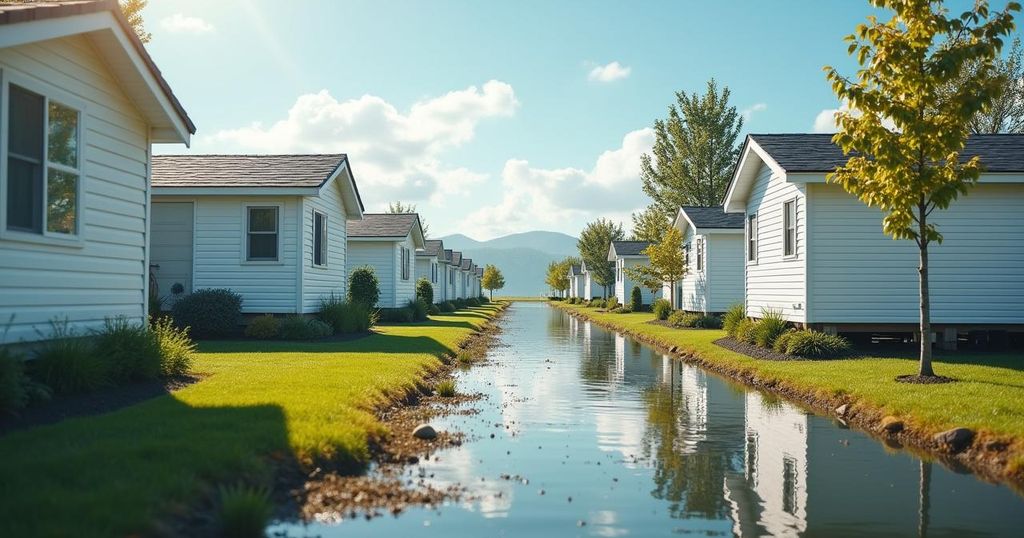The Risks of Climate Disasters for Mobile Home Residents

This article discusses the heightened risks faced by millions of Americans living in mobile and manufactured homes in the wake of climate disasters. It highlights the vulnerability of these structures during severe weather events, particularly through the tragic personal account of Joe Rogers, who suffered the loss of his wife during Hurricane Helene. The narrative emphasizes the urgent need for better disaster response measures for this at-risk population as climate change escalates these challenges.
In the United States, millions of individuals reside in mobile and manufactured homes, often facing significant risks during climate disasters. These homes, largely inhabited by vulnerable and economically disadvantaged families, are particularly susceptible to extreme weather events. The precarious nature of mobile home construction and their foundations contributes to their vulnerability in the face of flooding, hurricanes, and other natural calamities. When disasters strike, many residents of these homes find themselves unassisted, grappling with the immediate danger of rising waters and tornadic winds. The tragic case of Joe Rogers, who lost his wife during the devastation caused by Hurricane Helene, exemplifies the critical dangers faced by those living in mobile homes. As floodwaters invaded his home, Mr. Rogers made desperate attempts to save his wife, but tragically, their mobile home became detached from its foundation and was swept away by the flood. This harrowing experience underscores the urgent need for improved safety measures and support systems for residents of mobile homes, particularly as climate change continues to exacerbate the frequency and intensity of severe weather events.
Climate change and its ensuing disasters pose a significant threat to mobile and manufactured home residents throughout the United States. As weather patterns become increasingly unpredictable, individuals living in these structures, which often lack the sturdy foundations and infrastructure of traditional homes, face heightened risks. The economic and social vulnerabilities of these residents compound the challenges they encounter during emergencies. This phenomenon necessitates a closer examination of how current disaster response strategies can be reformed to better support this demographic, who may not have the financial resources to recover following such catastrophes.
In conclusion, the rising frequency and severity of climate-related disasters present profound risks to millions of Americans living in mobile homes. Instances like that of Joe Rogers underscore the dire consequences that can result from inadequate preparedness and support for these vulnerable populations. As climate change continues to alter our environmental landscape, it is imperative to implement enhanced safety protocols and robust assistance programs for mobile home residents to mitigate the impact of such disasters in the future.
Original Source: www.nytimes.com






